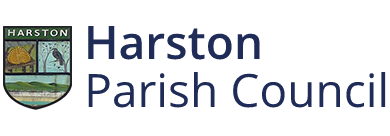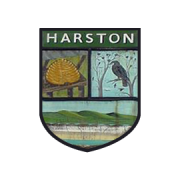What is a Parish Council?
A Parish Council is a local authority that makes decisions on behalf of the people in its parish. It is the level of government closest to the community, with the district authority (South Cambridgeshire District Council) above it in the hierarchy.
As it is the authority closest to the people, parish councils are usually the first place people will go with concerns or ideas. For this reason, they are a vital part of any community.
There are over 8,700 parish and town councils representing around 16 million people across England.
What decisions do Parish Councils make?
Parish councils make all kinds of decisions on issues that affect the local community. Probably the most common topics that parish councils get involved with are planning matters (as statutory consultees only – they are not the ultimate decision-makers), crime prevention, management of the open spaces and campaigning for and supporting better services and facilities.
Parish Councils do have limited powers to make decisions but they do have the ability to negotiate and influence those other organisations that do make the final decisions that affect the local area.
What powers do parish councils have?
They have a wide range of powers which are essentially related to local matters, such as looking after community buildings, open space, play areas, street lighting, bus shelters, car parks and much more. The council also has the power to raise money through taxation – the precept. The precept is the Parish Council’s share of the council tax. The precept demand goes to the billing authority which collects the tax for the parish council. Check your annual Council Tax Statement to see how much of your money goes to the Parish.
Do councillors have to declare any financial or other personal interests they have in a matter under discussion by the council?
Yes – all councillors have to abide by a Code of Conduct which sets out which interests have to be declared. They also have to enter relevant financial and other interests in a special Register that is open to inspection by members of the public. The council’s Clerk has a copy of the Code of Conduct and the Register or it can be inspected at the District Council’s offices.
The General Principles of Public Life
All Councillors will be asked to sign up to the Code of Conduct and should behave in a way consistent with the following principles—
- Selflessness
- Honesty and Integrity
- Objectivity
- Accountability
- Openness
- Leadership
Parish Duties
Harston Parish Council has 11 Councillors who all stand for election every four years. The duties are varied and Councillors are usually aligned to various “working parties”.
A Parish Council meeting is held on the first Thursday of every month at the Pavilion, The Limes, Harston at 7.30pm. Members of the public are welcome to attend and time is set aside at the start of each meeting for questions/ideas to be raised. A meeting will usually discuss planning applications, receive reports from District/County Councillors and ongoing activity within the Parish.
An Annual Parish Meeting is held at the Village Hall and residents are invited to attend. Presentations are given by representatives from the various organisations, i.e. Harston Parish Council, Harston Residents Group, Harston & Newton School, Harston History Society etc. A precis of the previous 12 months is given, together with any plans and aspirations for the forthcoming year.
Dates of all meetings are on the website and the formal minutes of each meeting can be found here
Why become a Parish Councillor?
If you’ve never attended a parish council meeting before, you may be forgiven for thinking that Parish Councillors are a group of (probably older) people who meet now and then in a cold and draughty hall – and, in that regard, you wouldn’t be far wrong!
Harston Parish Councillors give up their time and work together to support the community by influencing decisions to improve local facilities and services. They attend the monthly meetings (2/3 hours) and often attend other meetings held by outside organisations where they act as representatives for the Council.
How long does a Parish Councillor serve for?
Parish Councillors sit on the council for a maximum of four years. They can then stand again for re-election if they so wish. They don’t have to be connected to a political party
Am I eligible to be a Parish Councillor?
To stand for election on a parish council, you must: be a UK or commonwealth citizen, or;
- be a citizen of the Republic of Ireland, or;
- be a citizen of another Member state of the European Union;
- be a least 18 years old.
To be eligible to stand for an election for a particular parish, you must be an elector of the parish, or;
- for the whole of the previous 12 months have occupied (as owner or tenant) land or other premises in the parish, or;
- during the previous 12 months have worked in the parish (as your principal or only place of work), or;
- for the whole of the previous 12 months lived in the parish or within three miles of the parish boundary.
Don’t take our word for it!
The best way to find out what it’s like to be a Parish Councillor is to talk to someone who’s doing it now. Come along to a parish council meeting, speak to one of our Councillors and find out what they think of the job or contact the Clerk who will be happy to talk you through the things that Harston Parish Councillors get involved in.

